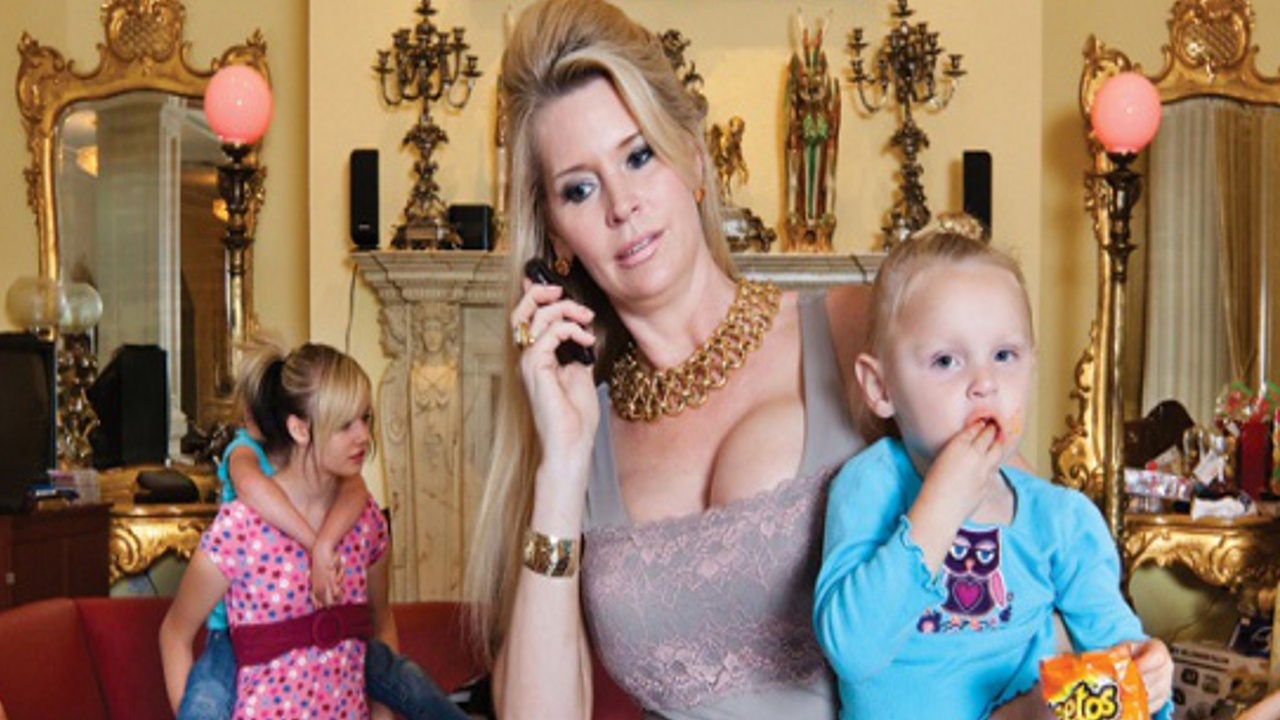Documentarians have to have some sense of flexibility with their subjects, depending on current events. The more general the subject, the less worry you can have (see: Michael Moore). However, there are times that events require you to change the focus of your story and take it into a different direction. Hoop Dreams is the best example of this, as the lives of their two leads got more interesting the more they filmed. Queen of Versailles falls into this category as well. While the filmmakers probably wanted to show the building of the tallest home in the United States (modeled after the Versailles Palace), their documentary took a different direction after the financial crisis. As interesting as the Siegel family was before the crisis, they got even more interesting after the collapse. As a result, the Queen of Versailles turned into a poignant study of the excesses of the American dream and how hard the fall from grace is for someone at the top.
Jacqueline Siegel can build Versailles because she is the wife of David Siegel, the time share guru of Westgate Resorts. The documentary at first showcases the many extravagances that will be inside the new home as well as Jacqueline’s personal life story. Once the recession hits, the focus shifts more so in the direction of David’s business and the consequences of the family’s excesses. Obviously, this doesn’t really end, it just stops, but the filmmakers find a nice place to stop the story before their subjects probably stopped speaking altogether.
The recession gives nice arcs to the principal characters. Jacqueline is clearly an attention seeker, but because of the recession we see her addiction to shopping and her desire to make lives less enjoyable than hers. She isn’t afraid to help others in need, and does it in the only way she knows how to do so: by spending. David is even more interesting by the end of the story that his extraverted wife. He is clearly the patsy to Jacqueline in the beginning of the Queen of Versailles. However, as the recession gets deeper and his business flounders, we get to see how desperate he becomes and how inward he retreats. By the end of the film, David won’t even speak to the cameras and can only be seen in his study going over his business notes complaining about excess money being spent.
The second half raises some very interesting questions to any viewer. As unprepared as the Siegel family was for the recession, is it fair they become the source of scorn compared to Main Street? As the documentary shows, their assets were mostly frozen unless they made more money, but they couldn’t make money as a timeshare unless they could sell their assets. The banks dealt this company a catch-22 it has struggled to recover from. Also, Jacqueline’s spending habits have remained relatively unchanged, just at cheaper stores. It is a testament to the filmmakers that this family isn’t loathed by the end of the story and are even slightly pitied. It is also amazing to see what becomes of the excess: by laying off nannies who run the household, animals die because they are not taken care of; feces lie all over the household, and storage becomes a real pain, including for the remaining nannies. The kids have to start searching for life passions because they cannot rest on daddy’s laurels anymore. Jacqueline herself can be seen as a possession of David (you get the impression he only saw trophy wife when he married her), and he starts to play a cost benefit analysis of her by the end of the movie: a cautionary tale to all those perceived trophy wives out there.
The recession put the view of the American dream out of reach for most people. As sad as that may be, it is just as sad to see families who hit the dream to fall from grace. Queen of Versailles is a cautionary tale that the American Dream is not a finality, it requires constant analysis to keep your position. It at least can teach you that if you have A big house, you don’t need to get THE biggest house.

